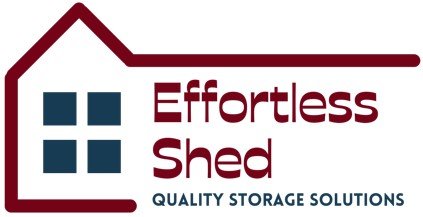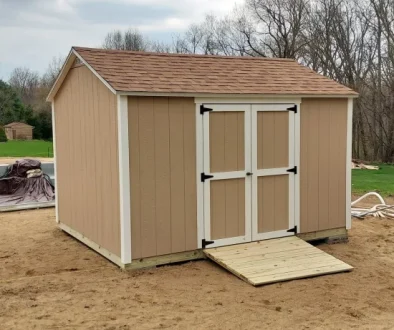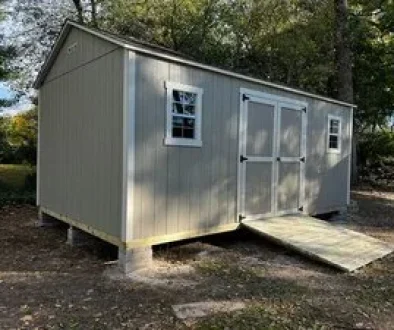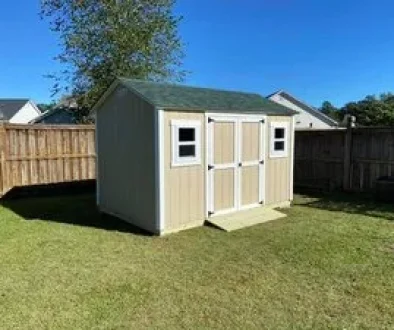Can You Legally Live in a Shed in Michigan? Complete Guide
Minimalist lifestyles and off-grid living are becoming more popular across the United States. Many people are looking for simpler, more affordable ways to live, and this often leads to one common question: Can you legally live in a shed?
Michigan is a state that attracts people interested in alternative housing. Its mix of rural land, natural beauty, and relatively low property costs makes it appealing to those who want to downsize or live off the land. From the forests of the Upper Peninsula to quiet townships across the Lower Peninsula, Michigan offers many opportunities for those seeking a different way of life.
This article will guide you whether living in a shed is legally allowed in Michigan. It will cover everything from state and local laws to practical challenges and possible solutions. By the end, you will have a clear understanding of what is involved in turning a shed into a livable and legal home in Michigan.
What’s Count As a Shed in Michigan?
In Michigan, a shed is typically defined as a small, detached structure used for storage or utility purposes. Most local building departments view sheds as accessory structures that are not intended for full-time living. This makes them different from tiny homes, cabins, or accessory dwelling units (ADUs), which are often built or designed for human habitation.
Sheds come in different types. Prefabricated sheds are delivered in ready-made sections or fully assembled. These are commonly found at hardware stores or ordered from shed companies. Custom-built sheds are constructed on-site and can be designed to fit specific needs or styles. Storage-only sheds are the most common and are built without any plumbing, insulation, or electrical systems.
A key distinction in Michigan building code is the difference between habitable and non-habitable structures. A habitable structure must meet certain requirements for living, including insulation, heating, plumbing, electrical systems, ventilation, and space standards. A basic shed does not meet these standards and is not considered safe or legal for use as a full-time residence in its original form. Understanding this difference is essential before planning to live in a shed, even on your own property.
Is It Legal to Live in a Shed in Michigan?
Living in a shed in Michigan is not automatically legal. Several state and local regulations must be followed to make a shed suitable for permanent housing. These include residential building codes, zoning laws, and permit requirements. Each of these areas must be addressed to avoid legal and safety issues.
1) State Laws & Building Codes
The Michigan Residential Code outlines what a legal home must include. Any building used for living must follow these state standards. Sheds, as built or sold, are not designed to meet those codes. To qualify as a legal residence, a structure must include proper insulation, heating, safe electrical wiring, ventilation, plumbing, and a sanitary system. It also must be built on an approved foundation and meet size, safety, and space standards.
If you are questioning “Does a Shed Meet Those Requirements?”. The answer is no, because a standard shed does not meet these requirements. It is considered a non-habitable structure under state code. Converting a shed to meet residential code is possible but requires major upgrades and full inspections. Until those steps are taken, the shed cannot legally be lived in.
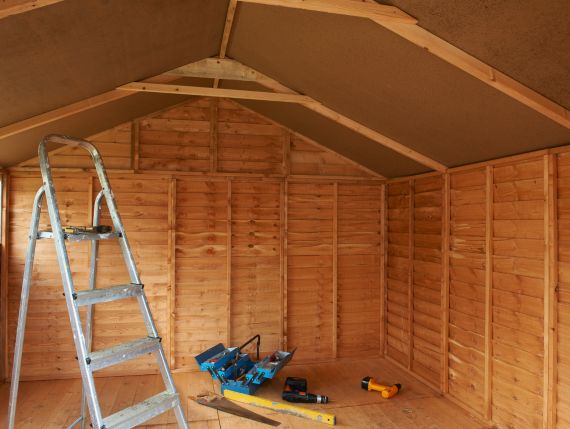
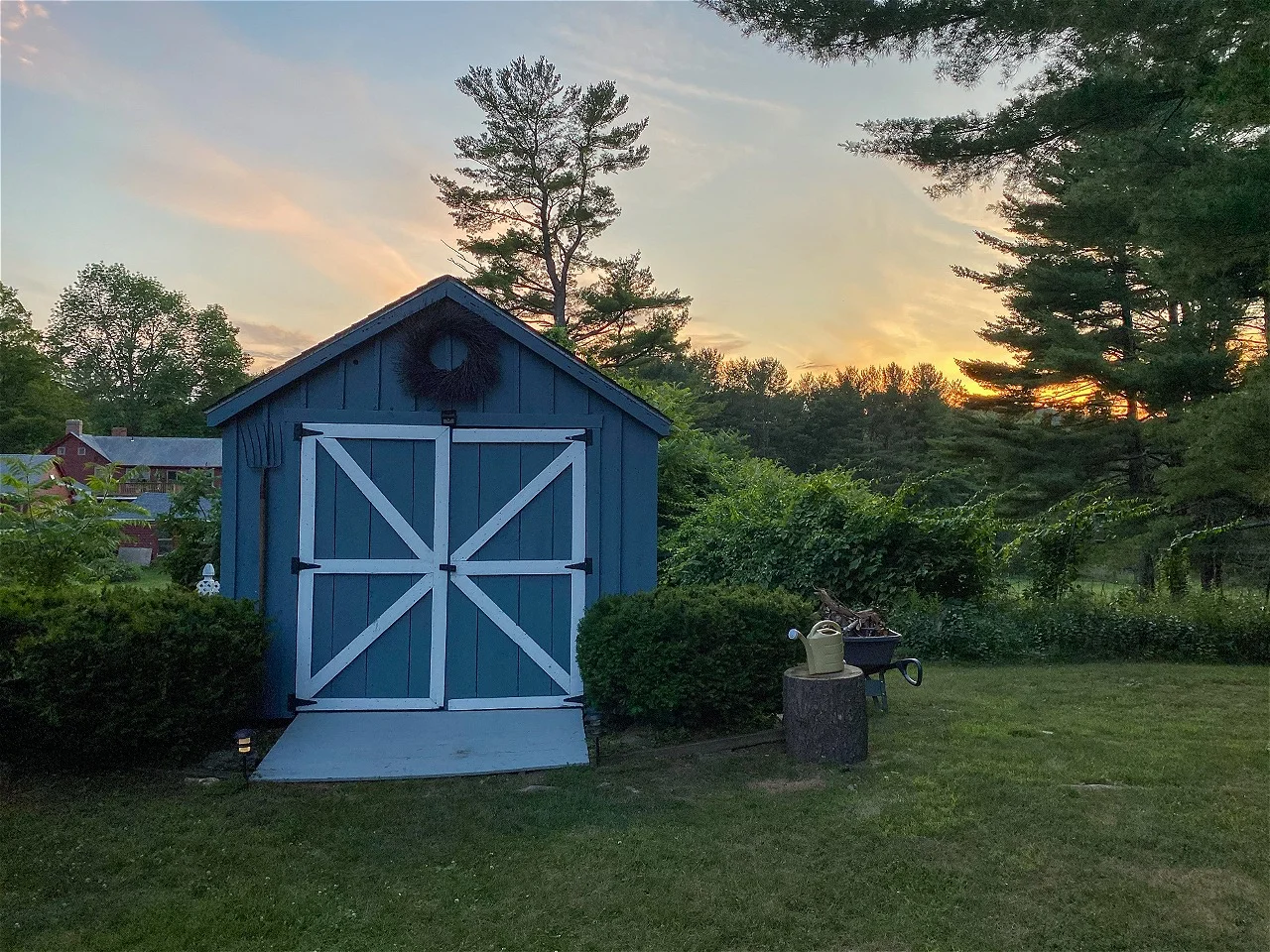
2) Local Zoning Laws
Zoning rules are handled at the local level in Michigan. What may be allowed in a rural township could be restricted in a city or suburb. Some counties are more flexible than others about alternative housing.
Most local ordinances only allow sheds to be used for storage. Using a shed as a home is often not permitted unless it meets local dwelling rules. These rules may include a minimum home size, lot use limits, or bans on living in accessory structures.
You can find local zoning rules by contacting your county or township zoning office. Ask if living in a shed is allowed on your property and if any exceptions or special use permits exist.
3) Permits & Inspections
If you plan to place or live in a shed, you will likely need a permit. This includes sheds connected to water, sewer, or electricity, or any use beyond storage. A change in use from storage to residential always requires approval.
Living in a shed without the proper permits can lead to stop-work orders, fines, and legal action. In many cases, the shed must be removed or brought up to code, which can be costly.
Before a shed can legally become a dwelling, it must pass inspections. Inspectors will check electrical work, plumbing, structure, and overall safety. If it meets code, you may be issued a Certificate of Occupancy, which legally allows you to live there.
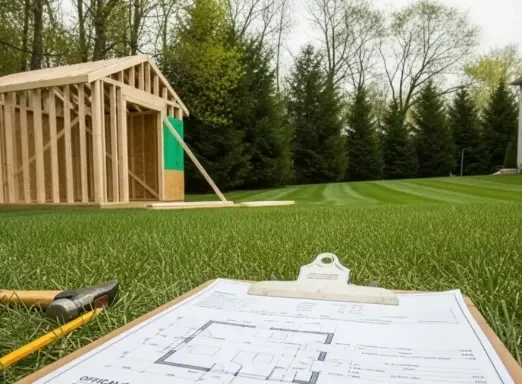
Legal Loopholes & Workarounds
Michigan law does not easily allow sheds to serve as permanent residences, but there are legal paths for those determined to live small. By upgrading a shed to meet residential code, applying for proper permits, or using temporary housing allowances, you can explore ways to comply with local laws while pursuing minimal living.
Method 1: Converting a Shed into a Legal Dwelling
Transforming a shed into a legal dwelling requires major upgrades. The structure must be insulated for Michigan’s climate and equipped with safe wiring, plumbing, and ventilation. A foundation may also be required to meet stability standards.
After these upgrades, you must apply for a change-of-use permit with your local building department. This permit formally changes the shed from a storage building to a habitable dwelling. Under Michigan law, a true dwelling or tiny home meets the same standards as any small house, while an unmodified shed remains non-habitable. Only after inspection and approval the shed can become a legal home.
Method 2: Living in a Shed Temporarily
Some Michigan townships allow temporary occupancy of non-traditional structures under limited conditions. A shed might be used for short-term living during home construction if you receive a temporary housing permit. Certain rural areas also allow the use of RVs or camping permits on private land, which can cover temporary stays in a modified shed.
Homesteading or agricultural parcels may provide limited exceptions, as some counties are more flexible about auxiliary structures on farmland. These arrangements are short-term solutions and require strict adherence to local rules.
The Challenges You May Face While Living in a Shed
Living in a shed in Michigan comes with serious practical challenges. Addressing these issues is necessary to ensure comfort, safety, and compliance with local requirements.
- Connecting to the electrical grid requires permits and professional installation, while solar power can work off-grid but may be unreliable during long, cloudy winters.
- Access to water may involve drilling a well or connecting to a municipal supply.
- Waste management requires an approved septic system, holding tank, or a compliant graywater disposal setup.
- Strong insulation and an efficient heating system are essential to survive Michigan’s harsh winters.
- Roofs and walls must be reinforced to handle heavy snow loads and prevent structural failure.
- Proper weatherproofing prevents water leaks that can lead to mold and rot.
- Ventilation is needed to avoid condensation buildup and maintain healthy indoor air.
- Small gaps in the shed can allow pests like rodents or insects to enter if not sealed.
- Smoke detectors, safe electrical wiring, and an accessible exit are necessary for fire and emergency safety.
Steps to Make Shed Living Legal in Michigan
Alternate Options to Shed Living
For people who want a small or affordable home without dealing with shed-related legal issues, several alternatives comply with residential standards more easily. Tiny houses on wheels (THOWs) are mobile and often designed to meet RV or local housing codes. Modular cabins are factory-built structures delivered to your land, already meeting residential requirements. Manufactured homes are built to federal HUD standards and are legal for full-time living in many Michigan counties. Barndominiums and pole barns combine storage with living areas, providing larger, code-compliant options that work well for rural properties.
